
山有小口,仿佛若有光。
Delicate and romantic coming-of-age: I TOLD SUNSET ABOUT YOU
This issue of the guide to chasing dramas selects: «Interpret my love with your heart» / «One heart, one translation»
I TOLD SUNSET ABOUT YOU
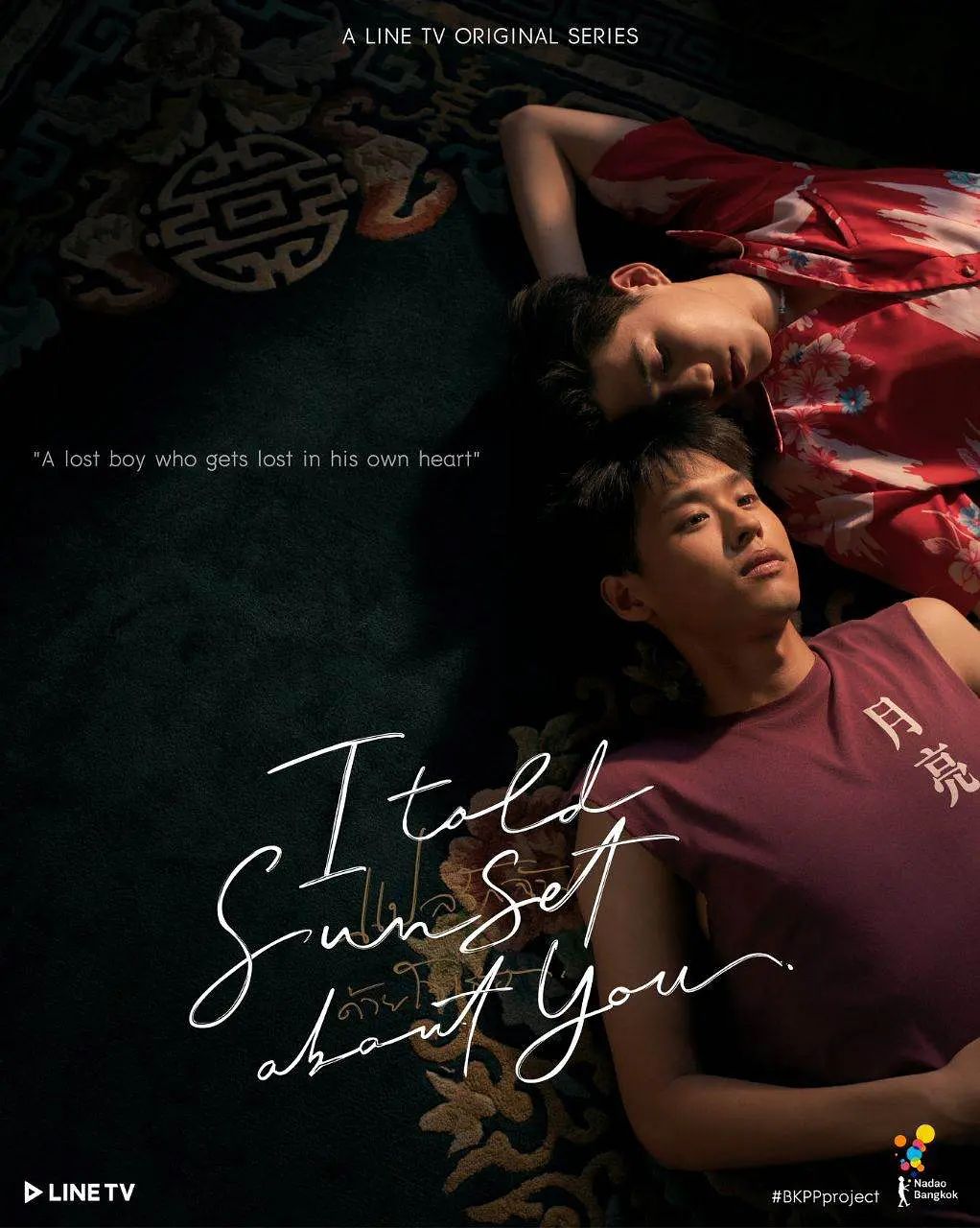
When the show was launched (October 2020), I was still preparing for the postgraduate exam, and I didn't have time to follow the show for the time being. I just remember that there were rave reviews on social media at that time. In the vagueness, I felt that I could easily fall into and fall on the top of my heart, but I never dared to watch it. Until the end of April this year, when I heard Jiao Maiqi cover the famous song "How" of this drama, I was deeply moved, and I embarked on a journey of sinking: Here, I found the kind of physiologicality that precedes the brain The self-seeking and exploration of the juvenile is like the sound of the heartbeat and the ripples in the heart. The hormonal instinct of the teenager is confused and explored because of the chaos, because of the simplicity and willful and impulsive, because of the temptation and warm and gorgeous.
Note: The play is abbreviated as ITSAU in the following narrative.
1. Relationship: mutual bondage
The protagonists are a pair of two innocent teenagers, De and Ouer. The first half of the story is very simple: because the "dream" becomes close, and because of the "dream", they are divided. It was not until they met again in the cram school in the third year of high school, and after the former friends resolved the misunderstanding, they became close again. When we watch TV dramas, we often feel the development of character relationships. In this play, when the director depicts the relationship between the two teenagers, he pays attention to depicting the complexity of the relationship in a compact narrative, so as to better convey the fetters of the relationship between the two. (For example, the amount of information in the first episode is already very rich, in addition to bringing out all the characters, their respective relationships, and the foreshadowing... It also gradually presents the changes in the degree of 6 kinds of relationships between the two: first acquaintance - friend - close friend — Break up — Enemy when we meet again — Reconcile friendship.)
In addition, the play magnifies and prolongs some of the turning points of the relationship between the two, and at the same time makes them more delicate, which is a surprise to me.
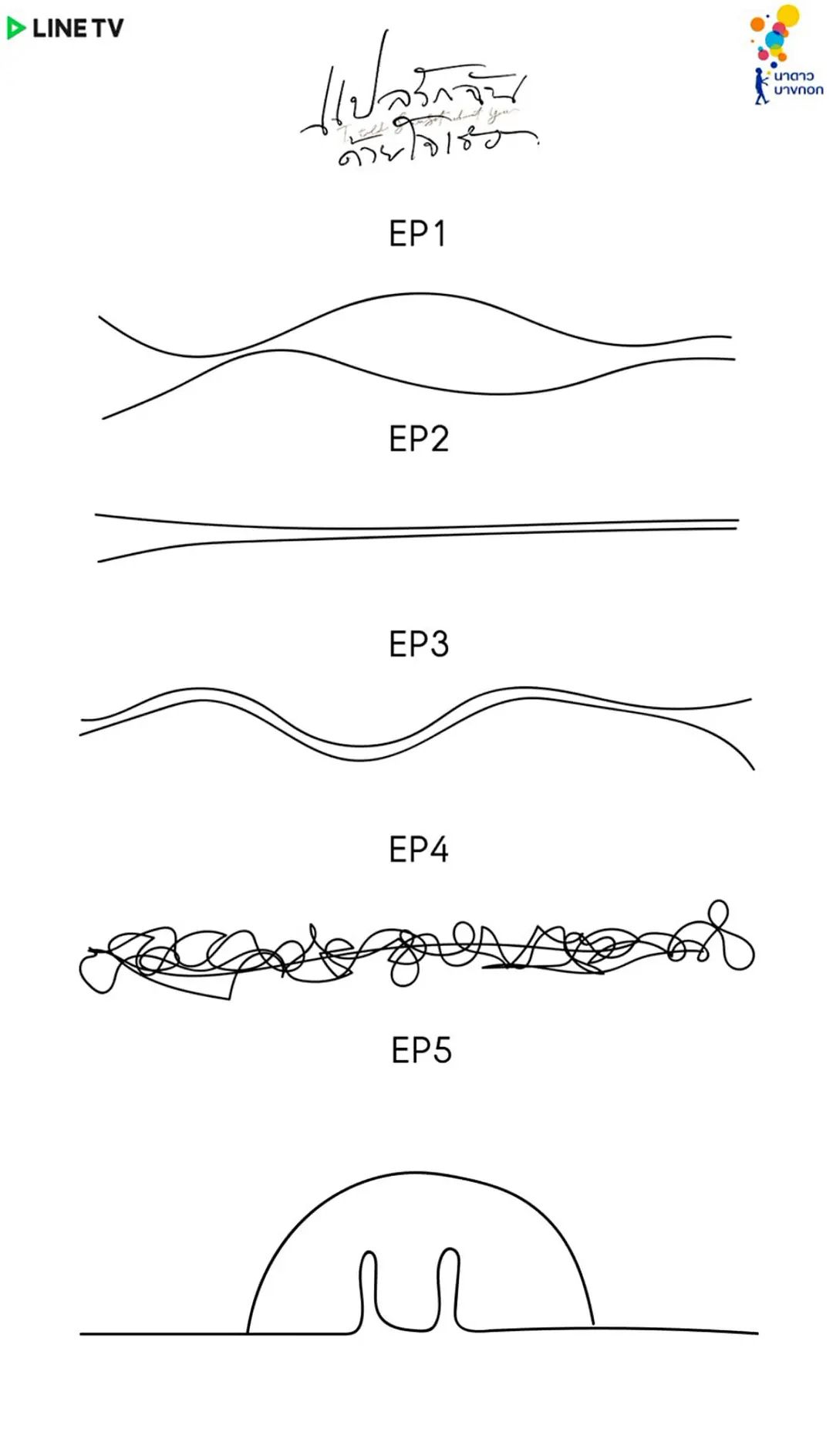
For example, when the two got back together when they grew up, Ouer told Dean about his concerns: what if we couldn't be as close as before. When the other two faced their own "possessiveness", De's anger, evasion and ultimate honesty confirmed the process of the two from "friends to close friends". Sincerely express your concerns about the relationship, sincerely express your inner "jealousy"... From this perspective, it is very much like a "relationship education film": it inspires us to exchange in the development of the relationship. Their own real ideas, more communication.
2. Tangled:
"Can I love him?" "Will you be proud of me?"
Recalling some of the studies I have seen before analyzing youth movies, it is mentioned that "coming-of-age" depicts the relationship between young people and themselves, others, and the outside world: chaos and new life . The background of ITSAY's story puts the two boys at the moment of entering school, facing pressure and expectations from their families. At the same time, there are other people who enter their own world, causing the shaking and reshaping of their self-identity.
At the beginning of the play, it was explained that Ou Er had completed the identification of his sexuality, and he frankly said to Germany that he liked another boy, Bai Shi. At this time, De Ye and Ou Er exchanged their favorite object is Dan, a girl who is also struggling for further education.
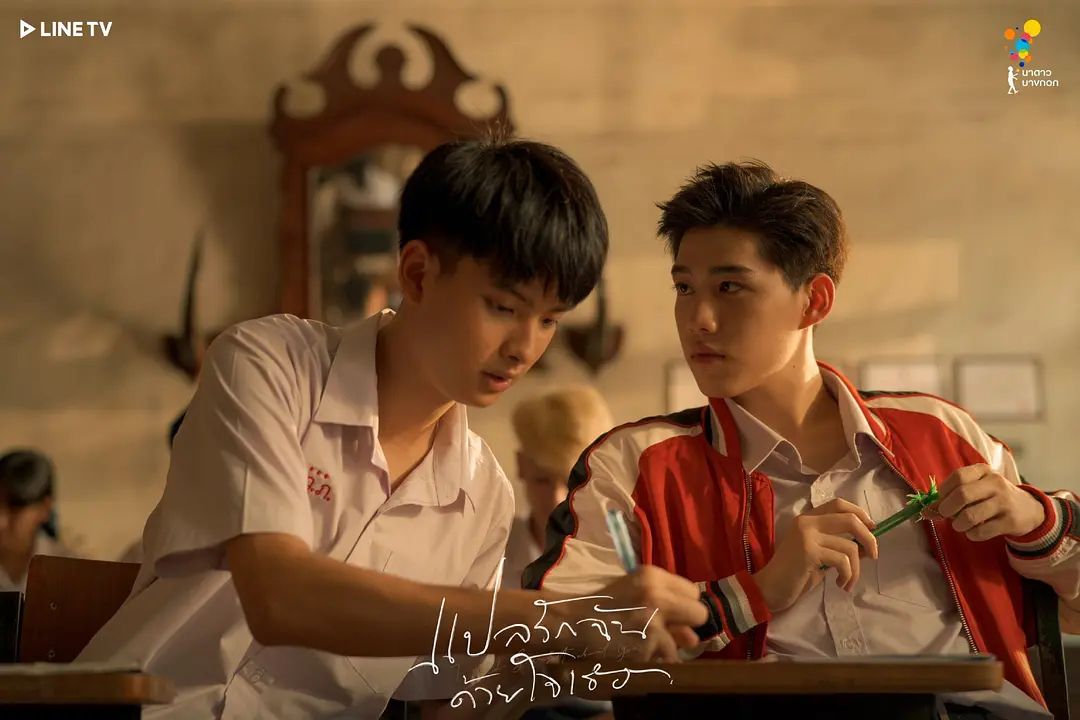
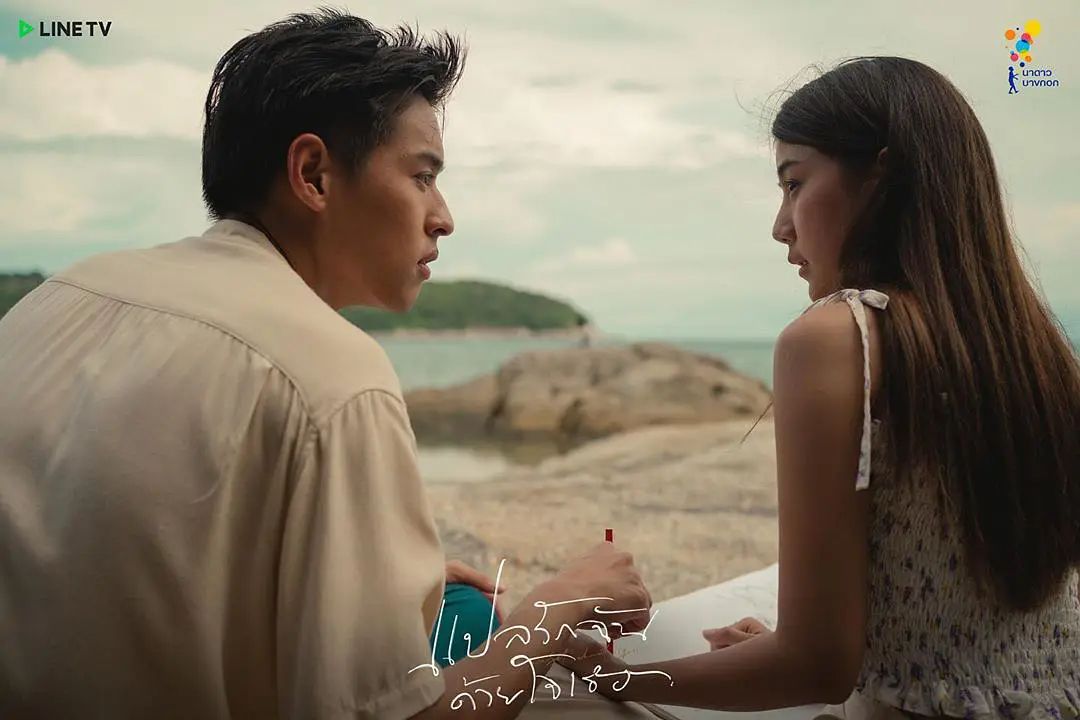
But as the relationship between the two further fermented, De and Ouer began to face the chaos and identity problems in their respective inner worlds: Can I love Ouer? Is my affection for Ou Er a love or a friend's affection? What should I do if he (German) can't accept my words? ...... The play does not shy away from the issue that the lbgtq+ group needs to confront themselves and the outside world in the secular world, that is, how to accept the real self , but let the audience see it in the "coming-of-age" their pain and struggle. This is also the presentation of the show that has been praised as having "comrade literature".
3. Desire / Affect:
What happens when I enter an "encounter" in which a certain body/object relationship changes me, acts upon me, combines with my own relationship, the characteristic relationship of my own body?
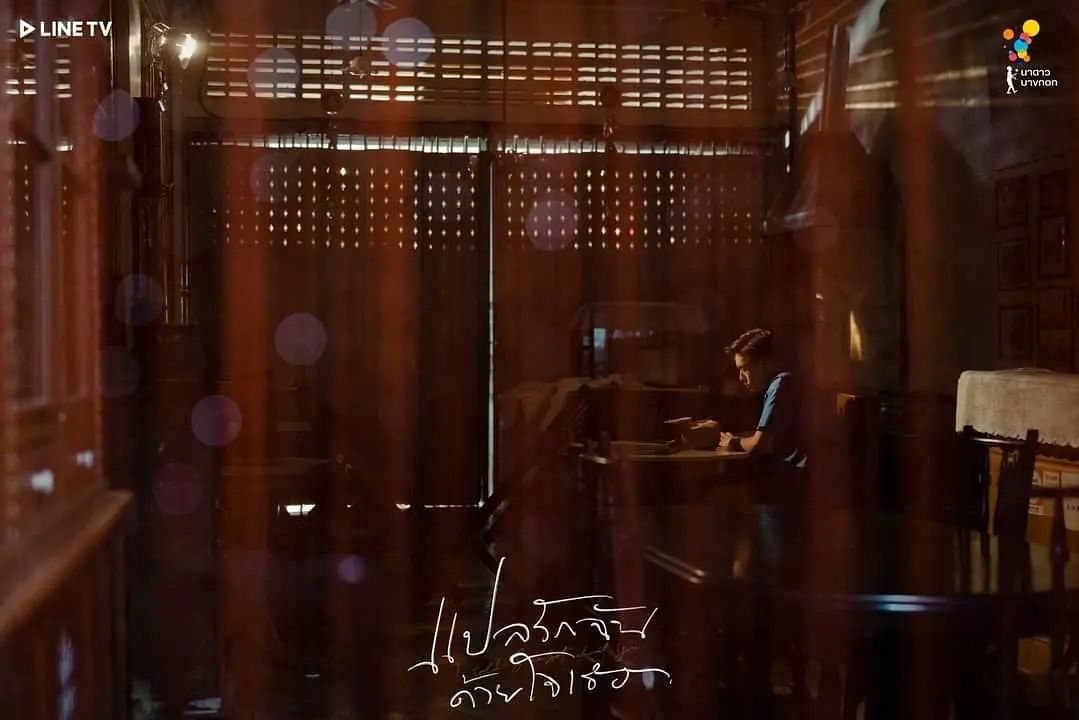
Although it is a teenage theme, the "erotic/emotional" scene in the play is also very eye-catching. When Ou Er's erotic breath gradually entered the world of virtue, their "bodies" began to change: some very primitive and very instinctive, such as smell, wanting to get close, limbs, these are obvious, everyone has it , but the impact on them is very lingering (in this respect, audio-visual language is guiding).
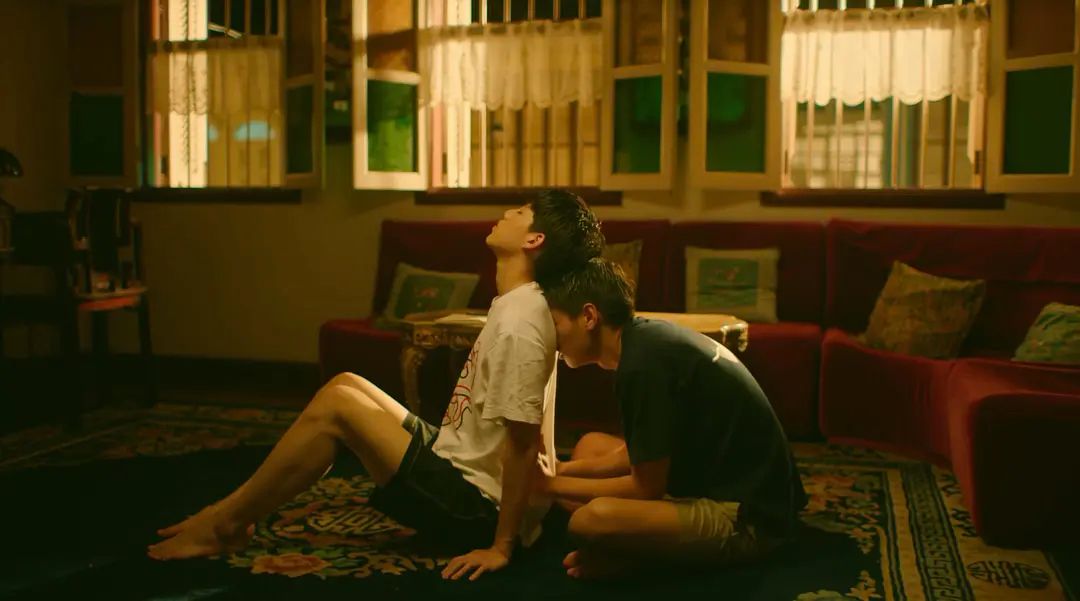
Such as incorporating coconut scent, physical distance on the legs. De can be said to be an out-and-out sensibility school and instinct school. He approached his own instincts without knowing it, until the contradiction occurred in the conflict between emotion and self-knowledge (as mentioned earlier, Ou Eryi From the beginning, he knew that he liked boys. But when his world was brought into Germany, it became a point of confusion and self-doubt for him.)
3. Romantic image symbol Fantasy:
A lot of non-obvious images and symbols are used in the play to make the story more vivid, which is what most ITSAU critics will praise. As warm and straightforward as the Thai style, many "simple" symbols are laid out from the first episode and are not repeated deliberately. When you discover their existence while watching, you will no longer be able to ignore them. They—as if they fell silently into vortexes : maybe it was Oer's conspicuous red, or maybe it was a code that only two people understood.
Don't spoil too much here~ You will be more surprised if you find out for yourself :D

The above are just some of the recommended points. In addition, there is also the seriousness of the entire crew, which is also very moving .
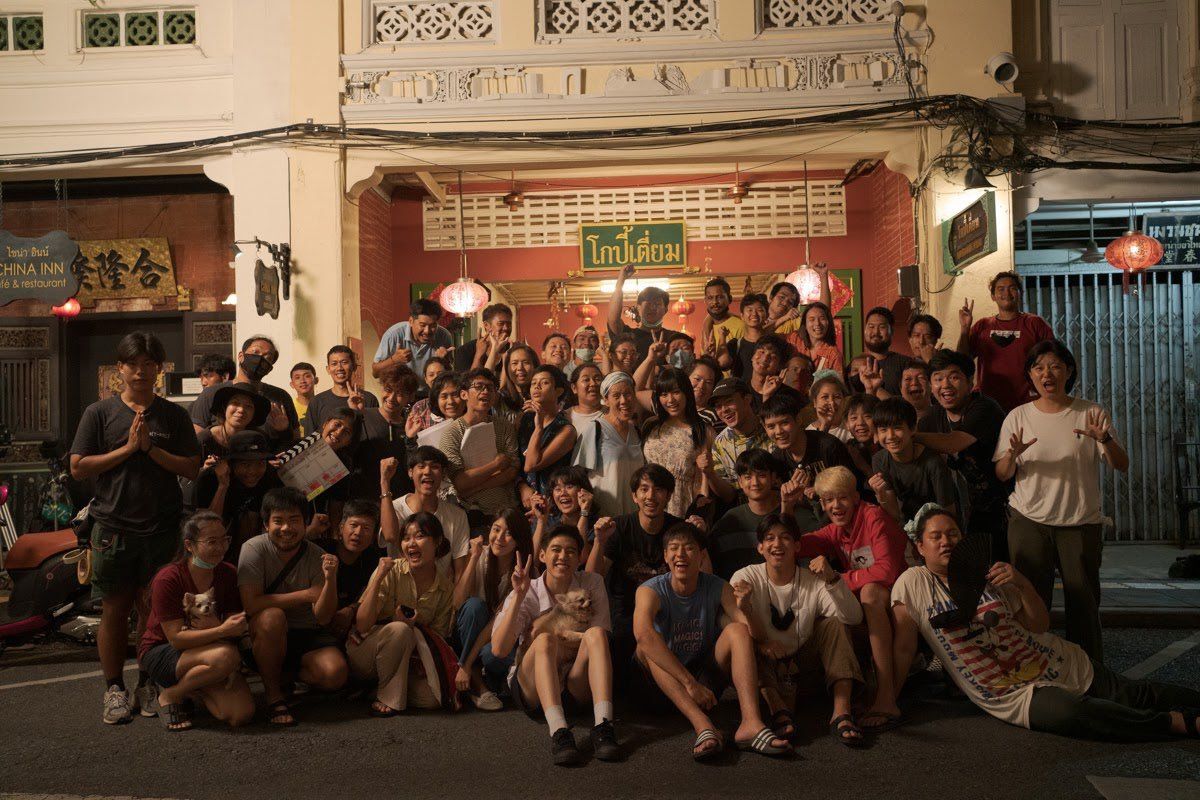
After watching this drama in one late night, I finished all the tidbits of this drama without stopping. (Note: The tidbits of the play are broadcast in the form of documentaries, and are planned and presented by a special director.) A deeper understanding of the birth of a good drama is inseparable from the efforts and persistence of the whole team, such as the director and photographer The beautiful composition and tone of "every frame is a wallpaper" came out of the joint efforts of . As well as the joint efforts with the actors, and after all the shooting, some unsatisfactory pictures were retaken, and the various famous scenes of EP4 were unforgettable.
In short, this drama has plenty of room, strong aftertaste, and long aftershocks. It is my favorite and most cherished drama this year. I recommend it to everyone through community activities~
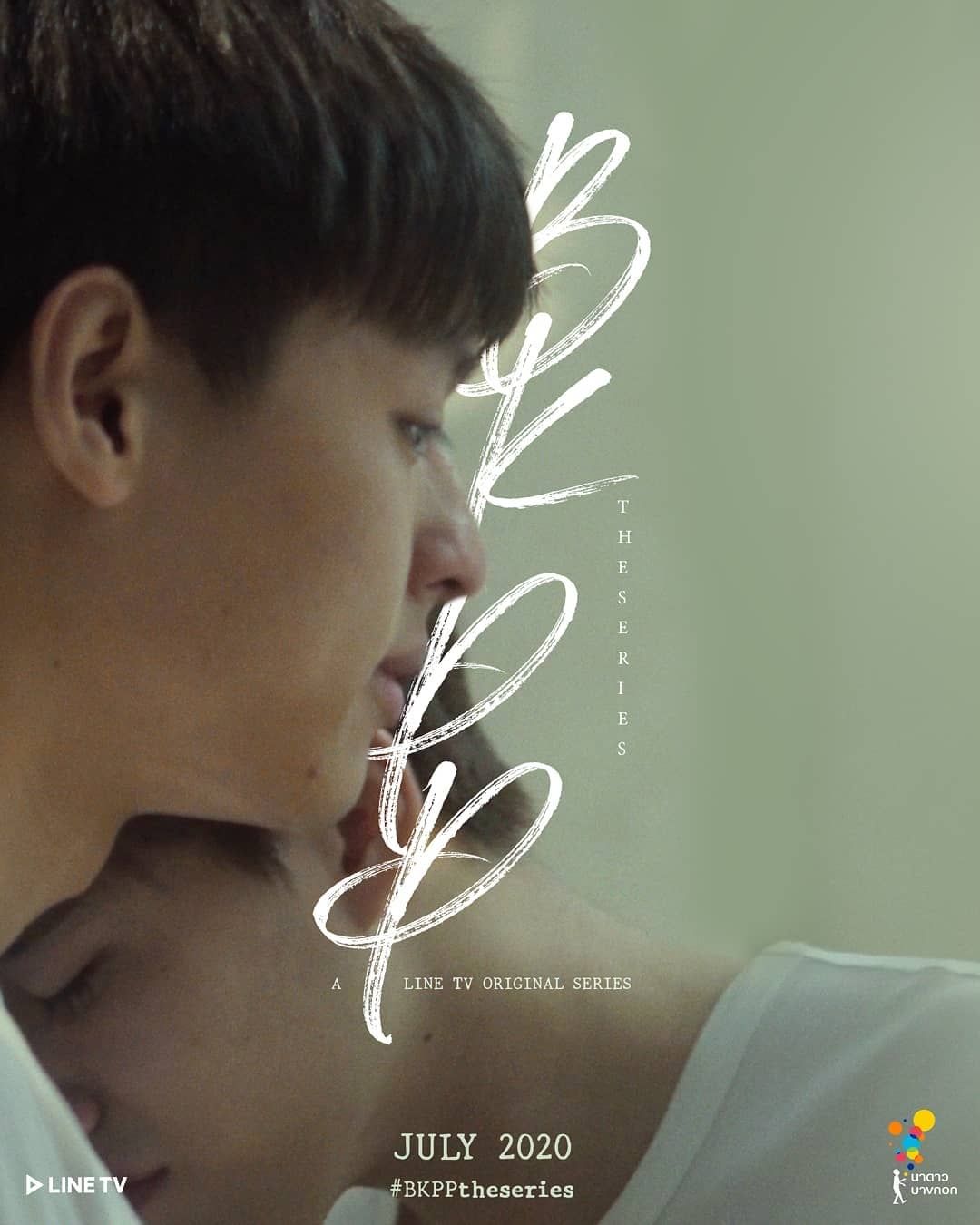
The last last: I do not recommend the second season of the show, it will become unfortunate 🙅♂️
Like my work?
Don't forget to support or like, so I know you are with me..
Comment…